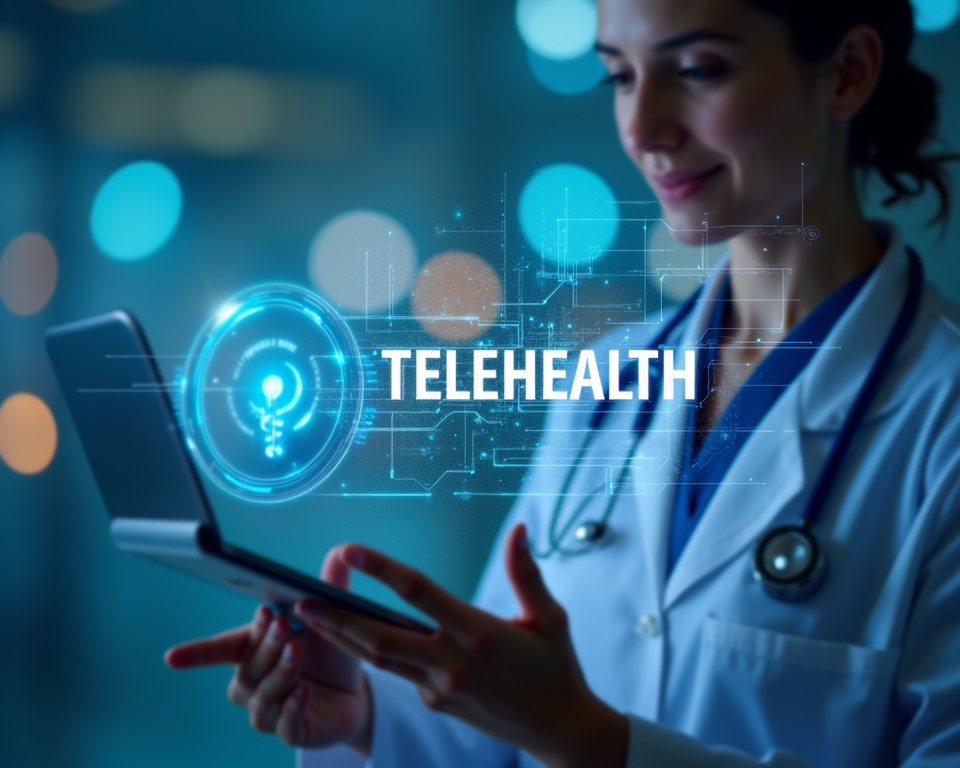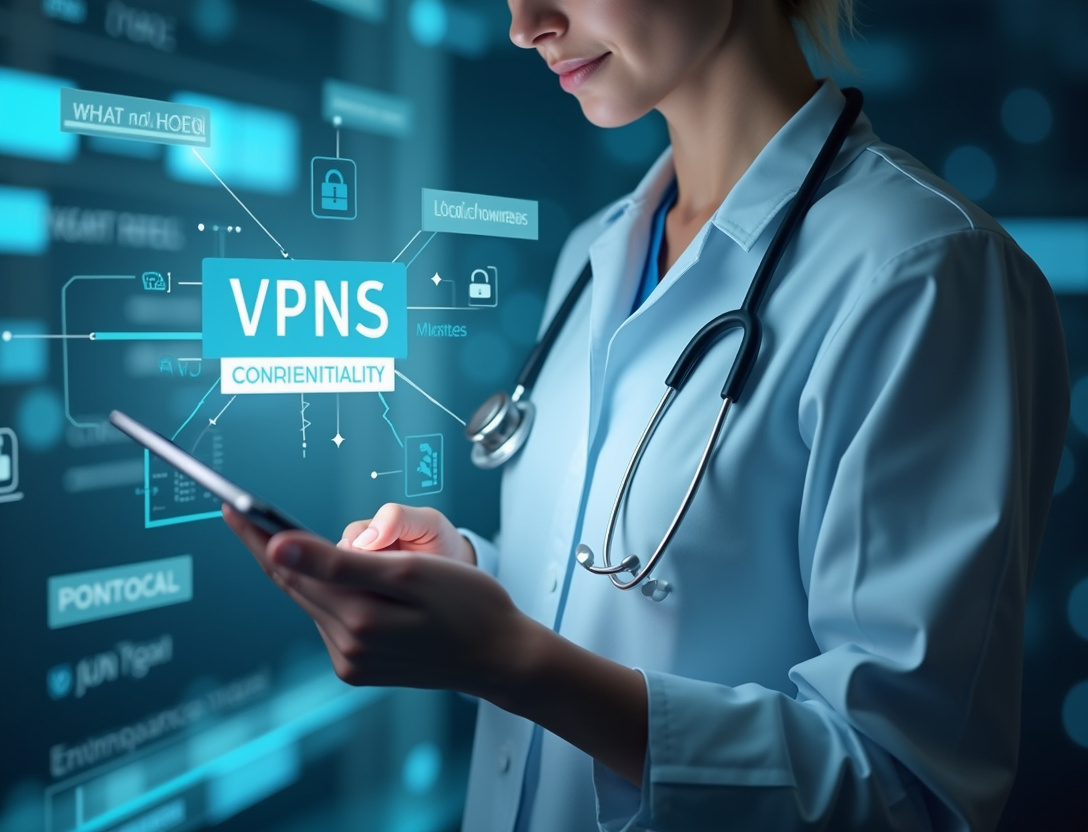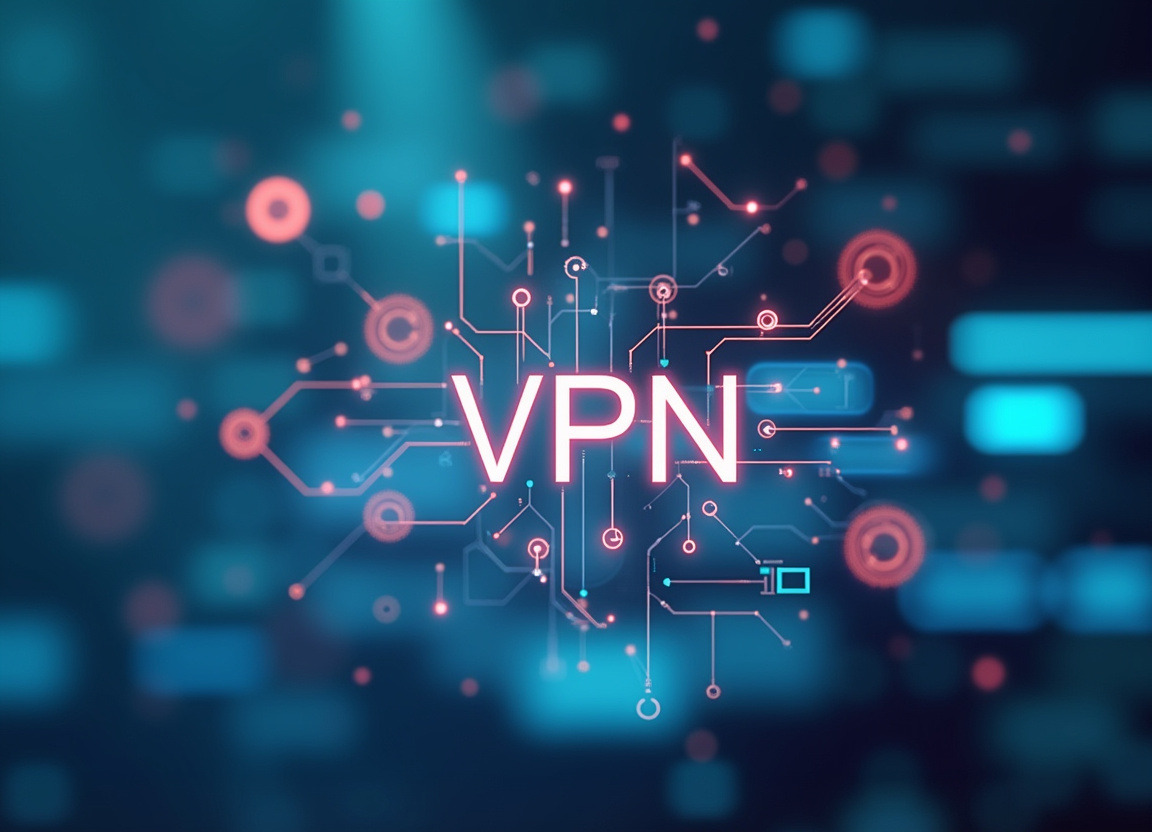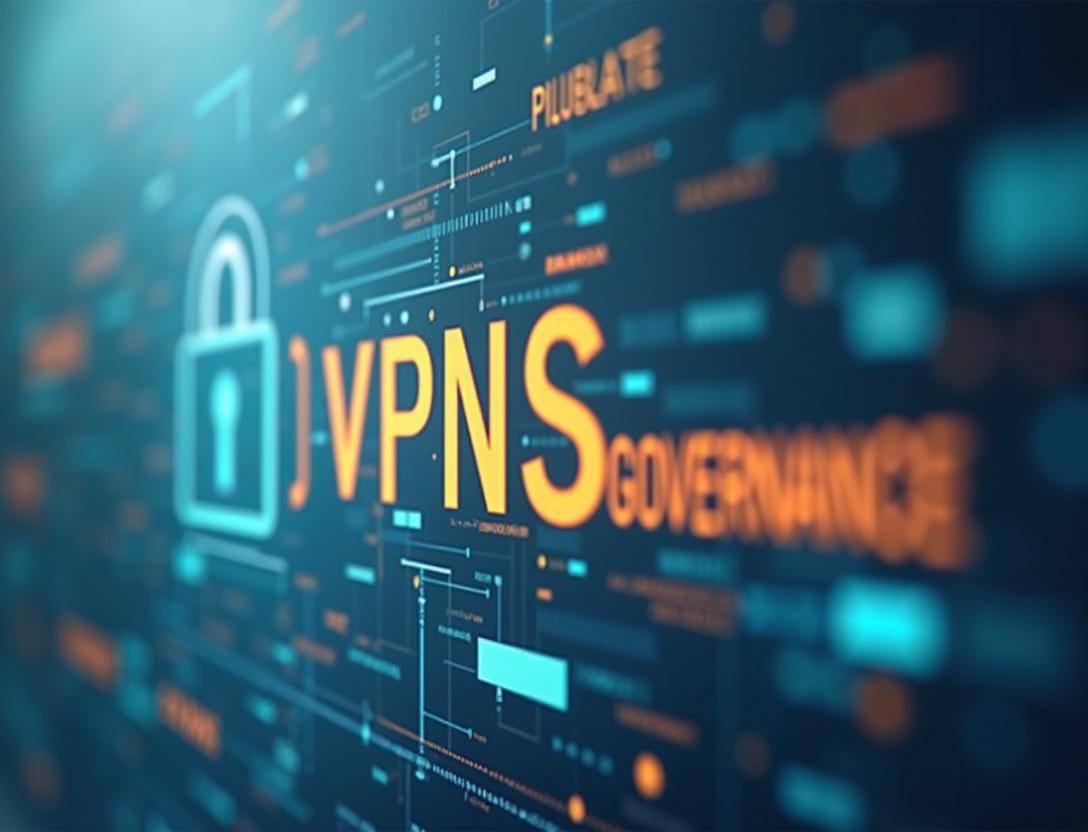VPNs for Remote Hospital Services: Protecting Patient Treatments

Table of Contents
This article delves into the critical role of VPNs (Virtual Private Networks) in safeguarding patient treatments within the expanding realm of remote hospital services. As healthcare increasingly embraces telemedicine, remote monitoring, and virtual consultations, the need to protect sensitive patient data and secure medical communications has become paramount. A remote hospital VPN offers a robust and essential solution, establishing a secure, encrypted channel for transmitting confidential information, ensuring both data protection and fostering trust.
The deployment of a VPN for healthcare is not merely a supplementary technological addition; it's a fundamental prerequisite for maintaining patient confidentiality, adhering to stringent compliance standards, and, above all, ensuring the wellbeing of patients in this increasingly interconnected digital era. The integration of VPN technology addresses the inherent vulnerabilities associated with transmitting medical data across networks, mitigating the risks of unauthorized interception, manipulation, and data breaches. The modern healthcare landscape is characterized by a growing reliance on remote services, presenting both opportunities and challenges.
Telemedicine, for instance, allows patients to receive medical consultations from the comfort of their homes, eliminating geographical barriers and improving access to specialized care. Remote monitoring devices enable healthcare providers to track patients' vital signs in real-time, facilitating early detection of potential health issues and proactive intervention. Virtual consultations streamline communication between patients and medical professionals, reducing the need for in-person visits and improving efficiency.
However, these remote services also introduce new security risks. When patient data is transmitted over the internet, it is vulnerable to interception by malicious actors. Hackers can potentially gain access to sensitive medical information, including diagnoses, treatment plans, medical history, and personal identification details.
This stolen information can be used for identity theft, blackmail, or other malicious purposes. The consequences of a data breach can be devastating for both patients and healthcare providers. Patients may suffer emotional distress, financial losses, and reputational damage.
Healthcare providers may face significant fines, legal liabilities, and loss of patient trust. Therefore, it is essential for healthcare organizations to implement robust security measures to protect patient data during transit and storage. A remote hospital VPN provides a critical layer of security by encrypting all data transmitted between the patient's device and the hospital's servers (or between different facilities).
This encryption scrambles the data, rendering it unreadable to anyone who does not have the correct decryption key. Even if a hacker intercepts the data, they will be unable to decipher its contents. VPNs also provide authentication mechanisms to verify the identity of users and devices.
This helps to prevent unauthorized access to sensitive medical information. By requiring users to authenticate themselves before accessing the network, healthcare organizations can ensure that only authorized personnel have access to patient data. Further enhancing patient treatment security, the implementation of a VPN solution contributes significantly to fulfilling the requirements set forth by healthcare regulations such as HIPAA in the United States and GDPR in Europe.
These regulations impose strict obligations on healthcare organizations to protect the privacy and security of patient data. By deploying a VPN, healthcare organizations can demonstrate their commitment to meeting these regulatory requirements, avoiding significant fines and reputational harm. They also build trust with patients, assuring them that their sensitive information is being handled with the utmost care.
Choosing the right VPN solution requires careful consideration of several factors. Healthcare organizations should prioritize VPNs that use strong encryption protocols, such as AES-256, to ensure the highest level of data protection. They should also look for VPNs that have a strict no-logs policy, meaning that they do not collect or store any data about user activity.
The VPN should also provide adequate bandwidth to support the demands of remote hospital services, such as video conferencing and large file transfers related to detailed imaging data. Implementing a VPN for healthcare is not just a technical solution; it's a commitment to protecting patient privacy and ensuring the security of medical communications. By taking this essential step, healthcare organizations can build trust with patients and stakeholders alike, fostering a culture of security and compliance in the digital age.
The landscape of medical communications is undergoing a profound transformation, driven by the rise of telehealth and the increasing reliance on digital platforms for collaboration and information sharing. Healthcare professionals are now routinely exchanging sensitive patient data through various channels, including email, instant messaging, cloud storage, and video conferencing. While these technologies offer significant benefits in terms of efficiency and accessibility, they also create new vulnerabilities that can compromise patient privacy and data security.
A VPN for healthcare acts as a secure conduit for all medical communications, encrypting data as it travels between different endpoints. This encryption ensures that even if a communication is intercepted, the contents remain unreadable to unauthorized parties. This is particularly important for protecting sensitive patient information such as medical records, diagnostic images, consultation notes, and billing details.
Without a VPN, these communications are susceptible to eavesdropping, man-in-the-middle attacks, and other security threats. The unsecured nature of these exchanges can have serious implications, potentially exposing patients to identity theft, fraud, and discrimination. Furthermore, breaches in medical communications confidentiality can erode patient trust and damage the reputation of healthcare organizations.
In addition to encryption, VPNs also provide authentication mechanisms to verify the identity of users and devices connecting to the network. This helps to prevent unauthorized access and ensures that only authorized healthcare professionals can access patient data. Multi-factor authentication (MFA), a common feature in VPN solutions, adds an extra layer of security by requiring users to provide multiple forms of identification, such as a password and a one-time code generated by a mobile app.
This significantly reduces the risk of unauthorized access, even if a password is compromised. Moreover, VPNs can be configured to enforce network access control policies, restricting access to specific resources based on user roles and permissions. This ensures that healthcare professionals only have access to the information they need to perform their duties, minimizing the risk of data leakage.
The implementation of a VPN also allows for centralized monitoring and auditing of all medical communications, enabling healthcare organizations to detect and respond to security incidents in a timely manner. Audit logs can track user activity, identify suspicious behavior, and provide valuable insights for improving security protocols. This proactive approach to security helps to prevent data breaches and protect patient privacy.
The use of a remote hospital VPN extends beyond internal communications within a healthcare organization. It also plays a crucial role in securing communications with external partners, such as referring physicians, specialists, insurance companies, and research institutions. These external communications often involve the exchange of highly sensitive patient data, making it essential to establish a secure and trusted channel.
A VPN can create a secure tunnel between the healthcare organization and its external partners, ensuring that all communications are encrypted and authenticated. This helps to protect patient privacy and maintain compliance with data protection regulations. For instance, sharing medical images with a radiologist at a remote location requires secure communication channels to prevent unauthorized access.
VPNs can also facilitate secure collaboration between healthcare professionals working on joint research projects. By encrypting data and authenticating users, a VPN helps to protect the confidentiality of research findings and patient data. This is particularly important in sensitive areas of research, such as clinical trials and genetic studies.
Furthermore, VPNs can be configured to restrict access to certain resources based on user roles and permissions. This ensures that healthcare professionals only have access to the information they need to perform their duties, minimizing the risk of unauthorized data access or disclosure. For example, a nurse may have access to patient medical records but not to billing information, while a billing clerk may have access to billing information but not to sensitive medical data.
This granular access control helps to prevent insider threats and data breaches. The implementation of a remote hospital VPN requires a comprehensive security strategy that addresses all aspects of medical communications. This includes educating healthcare professionals about the importance of data security and providing them with the tools and training they need to use VPN technology effectively.
Regular security audits and vulnerability assessments should also be conducted to identify and address any potential weaknesses in the VPN infrastructure. By prioritizing the security of medical communications and implementing robust data protection measures, healthcare organizations can ensure that patient data remains confidential and secure, regardless of the communication channel used. This builds trust with patients and stakeholders alike, fostering a culture of security and compliance within the organization.
It helps guarantee medical communications are private, secure, and reliable.
Data protection is paramount in the context of remote hospital services. The sheer volume and sensitivity of patient data necessitate a comprehensive security strategy that encompasses all aspects of data storage, transmission, and access. A remote hospital VPN is a cornerstone of this strategy, providing a secure and encrypted channel for data transmission between different locations.
However, a VPN alone is not sufficient to guarantee complete data protection. It must be integrated with other security measures, such as data encryption at rest, access controls, and intrusion detection systems, to create a layered security approach. Data encryption at rest involves encrypting data while it is stored on servers, databases, and other storage devices.
This ensures that even if a storage device is compromised, the data remains unreadable to unauthorized parties. This is crucial because even with strong VPN protection during transmission, data is vulnerable when stored in an unencrypted format. Should a server or hard drive be physically stolen or accessed through a security vulnerability, the unencrypted patient data would be readily available to malicious actors.
The combination of VPN for healthcare to protect data in transit and encryption at rest creates a formidable barrier against unauthorized data access. Access controls are another essential component of a comprehensive data protection strategy. These controls restrict access to patient data based on user roles and permissions.
For example, only authorized physicians should have access to a patient's complete medical history, while nurses may only need access to certain aspects of that history. By implementing strict access controls, healthcare organizations can minimize the risk of unauthorized data access and prevent insider threats. This involves not only technical controls, such as user authentication and authorization, but also administrative controls, such as security policies and procedures.
Regular audits of access control logs can help identify and address potential security vulnerabilities. Intrusion detection systems (IDS) monitor network traffic for suspicious activity and alert security personnel to potential security breaches. These systems can detect a variety of attacks, including hacking attempts, malware infections, and denial-of-service attacks.
By detecting these attacks early, healthcare organizations can take steps to mitigate the damage and prevent data breaches. An IDS complements a VPN by providing an additional layer of security, monitoring the network for malicious activity even when data is encrypted by the VPN. A well-designed data protection strategy also includes regular data backups.
These backups should be stored in a secure location, separate from the primary data storage. In the event of a data breach or disaster, backups can be used to restore data and minimize downtime. The backup process must be carefully planned and executed to ensure the integrity and availability of the data.
Regular testing of the backup and recovery procedures is crucial to ensure that they are effective. Furthermore, a comprehensive approach to data protection necessitates a strong focus on employee training and awareness. Healthcare professionals should receive regular training on data security best practices, including how to identify and avoid phishing scams, how to protect their passwords, and how to report security incidents.
Creating a culture of security awareness within the organization can significantly reduce the risk of data breaches. The specific data protection measures that are implemented will vary depending on the size and complexity of the healthcare organization. However, all healthcare organizations should have a comprehensive data protection strategy that includes a remote hospital VPN, data encryption at rest, access controls, intrusion detection systems, data backups, and employee training.
By taking these steps, healthcare organizations can protect patient data and maintain compliance with data protection regulations. Moreover, they can build trust with patients and stakeholders, assuring them that their sensitive information is being handled with the utmost care and diligence. Emphasizing data protection and patient treatment security builds a strong foundation of confidence in the remote hospital services being offered.
This is further supported by carefully managed medical communications, which benefit from the secured channel created by implementing a VPN for healthcare.
Building and maintaining trust is paramount in the provision of remote hospital services. Patients entrust healthcare providers with incredibly sensitive personal information, and any perceived breach of security can severely damage this trust. A single data breach can have devastating consequences, not only for the affected patients but also for the reputation and financial stability of the healthcare organization.
Therefore, implementing robust security measures, including a remote hospital VPN, is not just a matter of regulatory compliance; it's a fundamental ethical obligation. Transparent communication about security practices is also essential. Healthcare organizations should clearly explain to patients how their data is being protected and what measures are in place to prevent data breaches.
This can be done through website privacy policies, patient consent forms, and other communication channels. Being upfront about security measures helps build trust and confidence, reassuring patients that their information is being handled responsibly. Moreover, demonstrating a proactive approach to security can differentiate a healthcare organization from its competitors, attracting patients who value data privacy.
A comprehensive VPN security policy is vital for ensuring the effective and consistent use of VPN technology within a healthcare organization. This policy should clearly define who is authorized to use the VPN, what types of activities are permitted, and what security protocols must be followed. The policy should also address issues such as password management, device security, and incident reporting.
Regular review and updates of the VPN security policy are necessary to keep pace with evolving security threats and changes in technology. The policy should be communicated to all VPN users and enforced through appropriate monitoring and disciplinary measures. Furthermore, the policy should align with industry best practices and regulatory requirements, such as HIPAA and GDPR.
A well-defined and enforced VPN security policy helps to minimize the risk of human error and intentional misuse, strengthening the overall security posture of the healthcare organization. Regular security audits and penetration testing are essential for identifying and addressing vulnerabilities in the VPN infrastructure. Security audits involve a comprehensive review of the VPN configuration, security policies, and access controls.
Penetration testing simulates real-world attacks to identify weaknesses in the VPN implementation. These assessments should be conducted by qualified security professionals with expertise in VPN technology and healthcare security. The findings of these assessments should be used to improve the VPN configuration, strengthen security policies, and address any identified vulnerabilities.
Regular security audits and penetration testing help to ensure that the VPN remains effective in protecting patient data and preventing data breaches. A proactive approach to security is crucial in the ever-evolving threat landscape. Integrating the VPN with other security technologies, such as firewalls, intrusion detection systems, and security information and event management (SIEM) systems, can further enhance security.
Firewalls act as a barrier between the VPN and the external network, preventing unauthorized access. Intrusion detection systems monitor network traffic for suspicious activity and alert security personnel to potential security breaches. SIEM systems collect and analyze security logs from various sources, providing a comprehensive view of the security posture of the healthcare organization.
By integrating the VPN with these other security technologies, healthcare organizations can create a more robust and layered security defense. This integrated approach helps to detect and respond to security incidents more quickly and effectively, minimizing the potential for data breaches. The ability to centrally manage and monitor the VPN infrastructure is also crucial for maintaining security.
Choosing a VPN solution that offers robust management and monitoring capabilities enables healthcare organizations to proactively identify and address security risks. This includes features such as real-time monitoring of VPN connections, automated alerts for suspicious activity, and detailed reporting on VPN usage. Centralized management simplifies the process of configuring and maintaining the VPN, reducing the risk of human error.
Moreover, the VPN solution should be scalable to accommodate the growing demand for remote hospital services. This ensures that the VPN can continue to provide secure and reliable access to patient data as the healthcare organization expands its remote healthcare offerings. By prioritizing trust, transparency, and proactive security measures, healthcare organizations can build strong relationships with patients and stakeholders, ensuring the continued success of remote hospital services.
The successful integration of VPNs into remote hospital services hinges on a strategic approach encompassing careful planning, robust implementation, and continuous monitoring and improvement. It's not simply about installing software; it's about creating a secure and reliable ecosystem that protects patient data while enabling efficient medical communications. Before deploying a VPN, healthcare organizations must conduct a thorough risk assessment to identify potential vulnerabilities and determine the specific security requirements of their remote services.
This assessment should consider factors such as the sensitivity of the data being transmitted, the number of remote users, and the regulatory compliance obligations. Based on the risk assessment, a detailed VPN implementation plan should be developed, outlining the technical architecture, security policies, and user training procedures. This plan should also include a clear timeline and budget for the VPN deployment.
Choosing the right VPN solution is a critical step in the implementation process. Healthcare organizations should carefully evaluate different VPN providers, considering factors such as encryption strength, server locations, bandwidth capacity, logging policies, and compliance certifications. It's essential to select a VPN provider that has a proven track record of providing secure and reliable services.
A VPN tailored for healthcare should preferably comply with industry-specific standards and regulations, such as HIPAA and GDPR. Free or low-cost VPNs may not offer the same level of security and privacy as commercial VPNs, and they may not be suitable for protecting sensitive patient data, so it's best to avoid them. User training is an often-overlooked aspect of VPN implementation.
However, it's essential to ensure that all remote users understand how to use the VPN properly and what security measures they need to follow. Training should cover topics such as password management, device security, phishing awareness, and incident reporting. Regular refresher training can help to reinforce these concepts and keep users up-to-date on the latest security threats.
Providing ongoing support and guidance to remote users is also crucial for ensuring the effective use of the VPN. This can include creating a help desk or knowledge base with answers to common questions, as well as providing access to security experts who can provide assistance with more complex issues. Once the VPN is deployed, it's essential to continuously monitor its performance and security.
This includes monitoring VPN connections, logging security events, and conducting regular security audits. Security logs should be reviewed regularly to identify suspicious activity, assess the security policies and verify all its aspects. Automated alerts can be configured to notify security personnel of potential security breaches.
Monitoring helps to ensure that the VPN is functioning as intended and that any security vulnerabilities are identified and addressed promptly. In addition to monitoring, it's important to conduct regular security assessments, such as penetration testing and vulnerability scans, to identify weaknesses in the VPN infrastructure. These assessments should be conducted by qualified security professionals with expertise in VPN technology and healthcare security.
The findings of these assessments should be used to improve the VPN configuration, strengthen security policies, and address any identified vulnerabilities. Finally, it's important to remember that VPN implementation is an ongoing process. As the threat landscape evolves and new technologies emerge, healthcare organizations must continuously adapt their security measures to stay ahead of the curve.
This includes regular reviews of the VPN architecture, security policies, and user training procedures. By taking a proactive and adaptive approach to VPN security, healthcare organizations can ensure that their remote hospital services remain secure and reliable, protecting patient data and building trust with stakeholders. The combination of a secure remote hospital VPN, alongside meticulous patient treatment security protocols, fosters reliable medical communications and steadfast data protection which are critical for the future of remote healthcare.
In conclusion a secure and compliant remote hospital VPN provides a safe and secure channel for patient data exchange.
Stay Updated
Get the latest VPN news, tips, and exclusive deals to your inbox.




